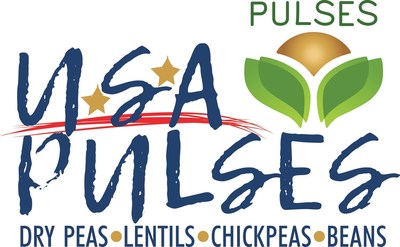Subjects: NPT, POL
School Districts, Pulse Growers, NGOs Call on USDA to Remove Barriers to Serving Pulses in School Meals
Beans, peas and lentils are nutrient-dense and affordable plant-based foods 80% of Americans are under consuming
MOSCOW, Idaho, Nov. 15, 2022 /PRNewswire/ -- More than 100 school districts, non-profit organizations, and grower associations signed onto a joint letter asking the United States Department of Agriculture (USDA) Food & Nutrition Service (FNS) to align with the 2020-2025 Dietary Guidelines for Americans by updating K-12 meal pattern guidance and requirements that currently create barriers to serving more pulses (beans, peas, lentils, and chickpeas) in school meals.
The joint letter asks that the USDA Food & Nutrition Service (FNS) update K-12 meal pattern guidance and requirements to:
- Allow beans, peas, lentils, tofu, and soy products to qualify as meat/meat alternate (M/MA) even if not visually recognizable;
- Enable beans, peas, and lentils to credit as both a vegetable and M/MA if served in sufficient quantities and allow the same pulse dish to credit as a vegetable or M/MA in a single day; and
- Diversify protein options by allowing more flexibility for beans/peas/lentils to credit as M/MA.
School meals are a crucial point of leverage to instill healthy eating habits at a young age and combat diet-related disease, especially for the millions of students who rely on free and reduced-price school meals as their primary source of nutrition. Current FNS nutrition standards and guidance, including requiring plant-based foods to be "visually recognizable," creates barriers for school food operators to serve nutrient-dense, plant-forward foods. By updating these regulations in its proposed rule, expected this winter, FNS can allow greater variety in healthy protein options while maintaining its goal of teaching children how to build a healthy plate.
"I would love to incorporate more beans, peas, and lentils into the menus we serve," said Diane Grodek from Austin ISD Food Service. "Making it easier for operators to serve these healthy and versatile foods would help us meet the demand for plant-based options from students and their families, serve a greater variety of nutritious meal options, and provide more flexibility during a time when we are struggling with supply chain and labor challenges."
The DGA notes that more than 80% of Americans do not meet the recommended intakes for beans, peas, and lentils, and more than 90% of Americans are not getting enough fiber. "Pulses are crucial sources of dietary fiber, folate, potassium, iron, and zinc," said Becky Garrison, Registered Dietitian and Director of Domestic Marketing for the USA Dry Pea & Lentil Council and American Pulse Association. "In order to bring school meals into greater alignment with the DGA's recommended intakes, FNS should create more opportunities to offer beans, peas, lentils and chickpeas. These foods are nutrient-dense, cost-effective, and sustainable too, but are consistently under-served and under-consumed across the nation."
These changes will help increase access to healthy, minimally-processed, plant-based foods that are often significantly under-consumed by the diverse student population served by the National School Lunch Program (NSLP), many of whom lack access to these healthful foods at home and in their communities. Making it easier for schools to serve beans, peas, and lentils will also support the goal of dramatically reducing greenhouse gas (GHG) emissions in our food system. As a nitrogen fixer, pulse crops are one of the lowest carbon emitters in the entire food system because they fix their own nitrogen in the soil and require little, if any, nitrogen fertilizer.
"Removing barriers to serving healthy, fiber-rich options like beans, chickpeas, and lentils is a no-brainer, especially at a time when schools districts are struggling with supply chain shortages, rising food costs and still recovering from a pandemic," said Adriane Busby, Senior Food and Climate Policy Analyst at Friends of the Earth. "We urge USDA to create more flexibility for our school food professionals who are working to meet the increased student demand for climate-friendly, plant-based options, and increase healthy food choices and fiber intake for students."
About USA Pulses
The USA Dry Pea & Lentil Council and American Pulse Association are a coalition of non-profit organizations devoted to increasing the consumption of pulse crops (dry peas, lentils, chickpeas, and beans). The USA Dry Pea and Lentil Council was established in 1965 and represents multiple grower and industry organizations in the production, marketing, and end-use applications for dry peas, lentils, and chickpeas. The American Pulse Association provides a unified coalition of pulse crop processors, warehouses, exporters, food manufacturers, producers and associate members representing the entire US pulse crop value chain from farm to fork. The American Pulse Association works to fund research focused on the nutrition, functionality, and sustainability of pulse crops. To learn more, check out www.usapulses.org.
Contact:
USA Pulses
Becky Garrison
[email protected]
SOURCE USA Pulses
These press releases may also interest you
|
News published on and distributed by:




